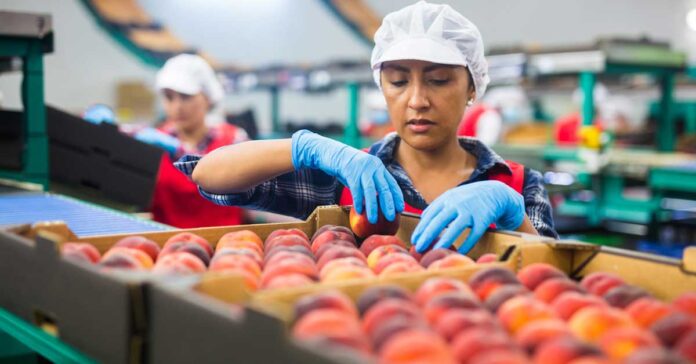Simply said, food processing is the procedure used to turn agricultural products into consumable food items. It involves many processing techniques, such as grinding grain to make raw flour, cooking at home, and using industrial processes to create convenience foods like noodles, spaghetti, and chips. Due to the wide range of food products that India collects and further prepares for consumption, the food processing industry constitutes a significant portion of the country’s economy.
The top producer of milk, bananas, mangoes, guavas, papayas, ginger, and okra in the world is India. It is also the second-largest producer of rice, wheat, fruits, vegetables, and cashew nuts in the world. Cereals, coconut, lettuce, chicory, nutmeg, mace, and cardamom are the third-largest producers in the world.
This business is expected to endure all four seasons and never fear a recession because of rising incomes and rising demand for packaged, healthful foods. Additionally, the government is increasingly supporting the sector.
Market Data

- One of the largest in the world, India’s food processing industry is anticipated to generate US$ 535 billion by 2025–2026.
- By 2024, 9 million jobs are projected to be created in this industry.
- The food processing sector makes up 32% of the entire Indian food industry, which is growing at a CAGR of 11%.
- Between April 2014 and March 2020, India’s food sector attracted $4.18 billion in foreign direct investments.
- The yearly household consumption in India is anticipated to triple by 2030, elevating the country to the fifth-largest consumer in the globe.
Key Trends & Growth Drivers
- Both urbanization and the organized food retail sector are growing.
- MSMEs are making significant contributions to the food processing chain in India through a variety of techniques and skill developments.
- In India, the internet meal ordering industry is expanding rapidly.
- Foods that are packaged, healthy, and promote immunity are in high demand, such as roasted nuts, popcorn, and roasted pulses.
- The market is transitioning from loose to branded packaging.
- The government’s “Atmanirbhar Bharat” project, which offers support through some measures, gives this industry importance.
Recently enacted government initiatives
The Indian government has given the food processing industry top attention in its “Make in India” plan and promotes investment there. The government has also created 134 cold chain projects and 18 mega food parks to develop the food processing supply chain.
Businesses that process food will likely benefit from these initiatives. Additionally, recent government initiatives, such as the Rs. 10,000 crores ($1.35 billion) scheme introduced by Mrs. Nirmala Sitharaman, the Finance Minister, to help this sector, have put the food processing industry on a high growth trajectory.
Launch of the Digital Map of India by GIS One District One Product (ODOP):
The Pradhan Mantri Formalization of Micro Food Processing Enterprises Scheme (PM-FME Scheme) and the GIS One District One Product (ODOP) Digital Map of India, which gives all stakeholders comprehensive information on ODOP products, respectively, were both launched by the Ministry of Food Processing on November 18, 2020. With a credit-linked subsidy of up to 35% of the approved project cost and a cap of Rs. 10 lakh (US$ 13.52 thousand), the ODOP program aimed to upgrade SMEs on a few specified items (within a district).
Mr. Narendra Singh Tomar, the Minister for Food Processing Industries, emphasized the need of developing a local value chain and educating food processing businesses through the PM-FME Scheme. These training programs, which are intended to help 8 lakh SME participants, will be delivered via video lectures and demonstrations online. Additionally, on November 21, 2020, the government granted a grant for 28 food processing projects worth Rs. 107.42 crores (US$ 14.52 million).
New Cold Chain Projects: Improving Exports and Cutting Food Waste
To increase the export potential of the regional agri-food sector and lower food waste, the Ministry of Food Processing Industries (MOFPI) approved 28 new local cold chain infrastructure projects in September 2020. These 28 initiatives are part of the Pradhan Mantri Kisan SAMPADA Yojana (PMKSY) program, which receives funding from the federal government in the amount of Rs. 2.08 billion (US$ 28 million).
The advantages that will result from these cold chain projects will aid India in becoming self-sufficient, according to MOFPI. These integrated cold chain projects will be implemented across 11 states and will be managed by centrally or state-owned businesses, as well as other organizations with government sanctions.
The Minister of Food Processing, Mr. Harsimrat Kaur Badal, announced these initiatives and said that they will not only help the food processing industry, but also the related industries, create jobs, and improve prices for farmers and end users. The local organization for the FMCG trade and retail sector, the Federation of All India Vyapar Mandal (FAIVM), applauded the program and said that it would prevent food wastage brought on by a lack of temperature-sensitive warehouses.
Projects Related to Food Processing:
On November 25, 2020, the government authorized seven projects for food processing totaling more than Rs 234 crore (US$ 31.63 million), including grant-in-aid for Meghalaya, Gujarat, Madhya Pradesh, Karnataka, and Maharashtra totaling Rs 60.87 crore (US$ 8.23 million). According to MOFPI, these initiatives are anticipated to create 7750 jobs and leverage private investments of Rs. 173.81 crores (US$ 23.49 million).
State initiatives recently
Kerala
With its enormous food and grocery market share, Mr. C Anandha Ramakrishnan, Director of the Indian Institute of Food Processing, Tanjore, emphasized India’s enormous potential to develop into a global food factory. At a webinar hosted by Kerala Agricultural University (KAU), he discussed the PM-FME scheme’s burgeoning prospects in the food processing sector.
According to Mr. Ramakrishnan, the One District One Product (ODOP) idea will certainly help Kerala’s ability to customize cuisine and promote convenient and ethnic food chains. To assist SMEs in concentrating on local production, KAU officials and the State Industries Department have teamed up to develop the ODOP idea. A range of items including mussels, tapioca, coconut oil, and spices are considered under this effort for diverse districts.
Telangana
On November 2, 2020, indigenous women opened their first food processing facility in Untnoor, Telangana. This unit was created as a result of cooperation between the Tribal Cooperative Finance Corporation Limited (TRICOR), the Telangana Tribal Welfare Department, the Ministry of Tribal Affairs of the Indian Government, and the Agribusiness and Innovation Platform of ICRISAT (AIP). Along with enhancing the economic circumstances of tribal tribes, this project attempts to localize manufacturing and treat malnutrition. The business, Komaram Bheem Peanut Chikki Industries, would provide produce to tribal anganwadis and government nutrition programs.
Chandigarh
To encourage investments in the food processing industry, the Punjab government established the “Punjab Food Processing Advisory Committee” in September 2020. Om Prakash Soni, the Minister of Punjab for Food Processing, promised that this action would increase farmer faith in the system since they would be able to realize fair rates for their crops. The state’s food processing industry needs to be strengthened, according to Captain Amarinder Singh, the chief minister of Punjab, as doing so will increase farmer incomes and the state’s economy. Additionally, Mr. Joginder Singh Mann, the chairman of Punjab Agro Industries Corporation, lauded the survey carried out by the food processing department in Chandigarh as part of the ODOP scheme.
Road ahead
The demand for nutritious, immunity-boosting snacks and ready-to-eat meals has changed as a result of some causes, including the growth in health problems, the ongoing COVID-19 epidemic, busy lifestyles, and an increase in food adulteration. During the COVID-19 issue, safe and processed food categories including biscuits and snacks have grown.
Opportunities in the Indian food processing sector have not yet been fully exploited, according to Mr. Anand Ramanathan, Partner, Deloitte India, in an interview with Economic Times. According to him, India has a 10% market share among Asian nations and ranks far lower in the industry than the rest of the world. The scale of the food processing industry in India is 1.5 times larger than that of the agricultural industry, compared to 4-5 times in wealthy nations. India has a relatively low ratio of food retail sales to GDP from agriculture when compared to other industrialized nations, which suggests a potential for expanding the food processing sector. India now processes about 10% of its agricultural output, which has an enormous opportunity to increase processing levels and draw investments in this sector.
Mr. Ramanathan went on to say that the demand in retail and the rise of health-conscious consumers, who choose safe, branded food, will drive the growth of the food processing sector. He also discussed how COVID-19 promotes horticulture and agriculture. There is currently a healthy mix of functioning MSMEs in the Indian food processing business. A robust crop value chain supported by proper investment and technological applications will strengthen the food processing sector via the MSME sector, he continued.
Concluding Thoughts
The Indian food business is expected to experience rapid expansion, boosting its annual contribution to the global food trade. Due to its enormous potential for value addition, particularly within the food processing industry, the food sector has become one of India’s fastest-growing and most lucrative industries.
With the advent of online meal delivery services like Zomato, Swiggy, etc., the Indian food ordering industry has undergone a significant upheaval. Because of its high potential and extensive client base, the food processing business is more appealing to investors. Demands will always be high because food is a basic necessity. The government is actively pushing the food processing industry, in which several large corporations are already actively engaged. Such sectors are expanding as a result of numerous factors.



